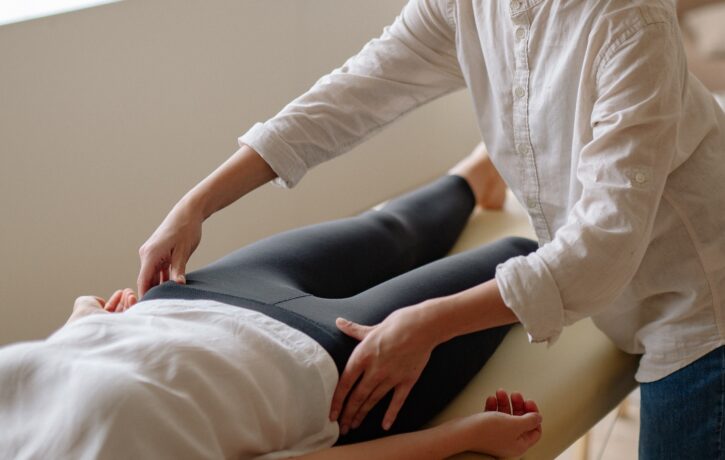Lateral Hip Pain

The outside of the hip is a relatively common site for pain. More common in females and more common post-menopause, there seems to be some correlation with hormonal change and possibly greater hip angles that females have because of gender-specific, anatomical, differences to the pelvis.
The term greater trochanteric pain syndrome has been coined to encompass a range of conditions that cause symptoms to the outside of the hip, often made worse with loading activities such as walking or climbing stairs. The pain can be worse when standing and walking after periods of rest but can also cause night pain due to pressure applied to the outside of the hip from laying directly on the affected side or by soft tissues applying pressure directly over the hip even when not laying directly on it.
Aggravating factors tend to be seen as pressure over the greater trochanter, which is the bony part at the top of the thigh before the angle of the femur changes to form the hip joint. Many of the muscles around the hip are attached to the greater trochanter and a common issue leading to lateral hip pain can be due to the muscles or tendons struggling to cope with weight-bearing activities and causing the symptoms and pain experienced.
Irritation can lead to pain and swelling beneath the iliotibial band (IT Band), as it overlies the greater trochanter, putting pressure on the tissues between the bone and IT Band. There is a large bursae there which when irritated would cause bursitis, and also the tendons that I have already mentioned that could be tendonitis.
Management is by understanding the aggravating factors and temporary activity modification to
help symptoms. Rehabilitation has to target those tissues that are irritated and look to strengthen
and build more resilience to reduce the irritation and then pain and symptoms.
If you are concerned about hip pain and want advice for effective management, then please get in
touch and come to the clinic for a consultation, treatment and advice. Contact The Body Matters on 01702 714968.
This article was written by Matthew Oliver M.OST DO ND. Osteopath.
- How to See Life from Another Person’s Point of View - 22nd April 2024
- Using Self-Talk to Boost Self-Confidence - 5th April 2024
- Simple Techniques for Recharging Amid a Hectic Schedule - 28th March 2024
